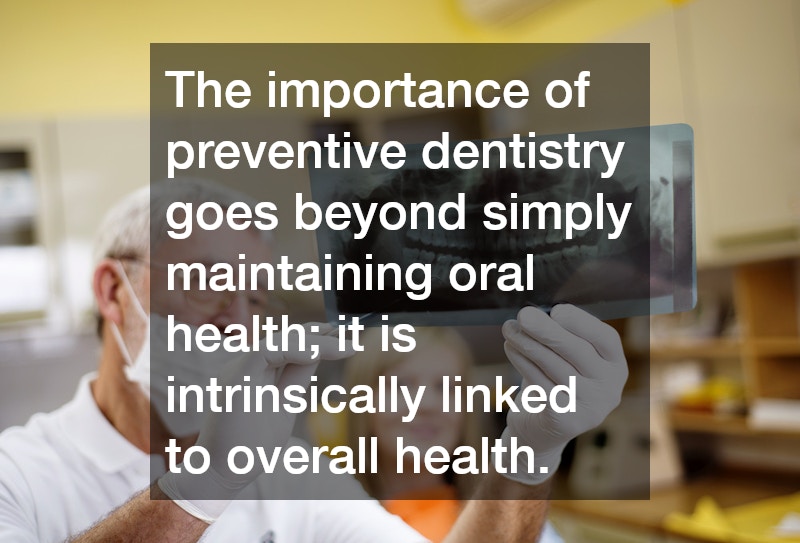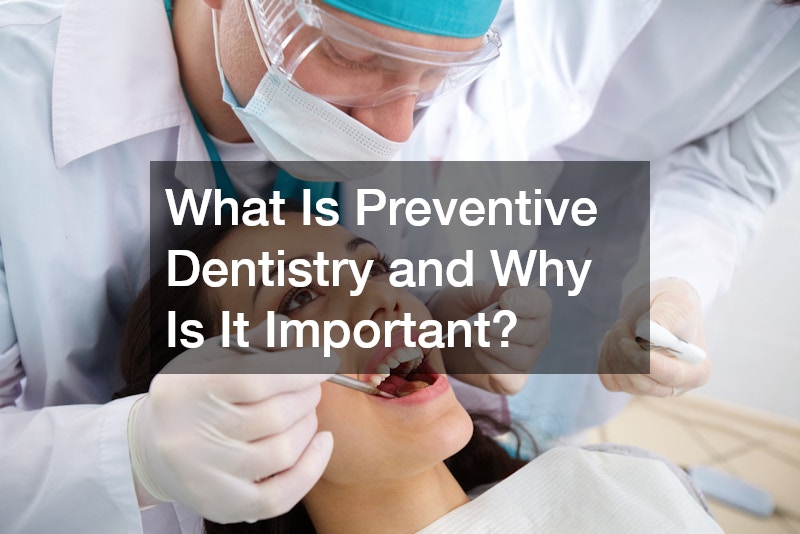Disclaimer: Concordia Research. This site provides general content for informational purposes only.
What Is Preventive Dentistry and Why Is It Important?
In the realm of oral health, preventive dentistry stands as a cornerstone of achievement, ensuring individuals maintain healthy teeth and gums throughout their lives. This proactive approach is not merely about waiting for dental issues to occur and then addressing them. Instead, preventive dentistry focuses on safeguarding oral structures before complications arise, thereby reducing the necessity for invasive treatments. This article delves into the essence of preventive dentistry, exploring its significance, strategies, and its pivotal role in lifelong oral health maintenance.
Preventive dentistry is a dental practice dedicated to maintaining oral health and thwarting dental issues before they develop into problems. It encompasses a range of activities that both dental professionals and individuals can undertake, such as regular check-ups, cleanings, and education on effective oral hygiene habits.
By placing an emphasis on prevention, this approach aims to minimize the incidence of cavities, gum diseases, enamel wear, and other oral conditions. The concept behind preventive dentistry is that by investing in routine care now, individuals can avoid pain, inconvenience, and extensive dental treatments in the future. As such, preventive dentistry serves as a practical and efficient approach to managing oral health.
One fundamental aspect of preventive dentistry is routine dental check-ups. These visits are crucial because they allow dentists to detect potential problems early on when they are easier to treat. Regular appointments typically include examinations for tooth decay and gum disease, as well as professional cleanings that remove plaque and tartar. Cavities, in particular, are one of the most common dental problems. It is a fact that untreated cavities can lead to more severe oral health problems, such as tooth infections and abscesses. Dental professionals can also provide personalized advice on brushing and flossing techniques, ensuring that individuals maintain optimal oral hygiene between visits.
In addition to professional care, preventive dentistry empowers individuals to take control of their oral health through effective daily practices. This includes brushing teeth at least twice a day with fluoride toothpaste and flossing daily to remove food particles and plaque between teeth and along the gumline. Lifestyle choices, such as limiting sugary snacks and beverages, also play a crucial role in preventing dental issues. Oral hygiene education is paramount, as understanding the proper techniques and importance of these tasks can dramatically transform oral health outcomes. Such education often begins in childhood and is reinforced throughout life to build a solid foundation of dental wellness.
Preventive dentistry is also significantly bolstered by the use of dental sealants and fluoride treatments. Dental sealants are thin, plastic coatings applied to the chewing surfaces of the back teeth where cavities are most likely to develop. They act as a barrier to protect enamel from plaque and acids. Similarly, fluoride treatments help in strengthening the teeth and preventing decay. Fluoride is a mineral that occurs naturally in many foods and water and is frequently added to toothpastes and mouth rinses. By using these preventive measures, individuals can shield their teeth from damage and maintain their oral health longer term.
The importance of preventive dentistry goes beyond simply maintaining oral health; it is intrinsically linked to overall health. The mouth serves as a gateway to the body, and poor oral health can contribute to several systemic conditions, such as cardiovascular disease and diabetes. Furthermore, oral health can affect one’s quality of life, influencing factors such as self-esteem, speech, and nutrition. By prioritizing preventive practices, individuals not only preserve their teeth and gums but also contribute to their overall well-being. Ultimately, preventive dentistry represents a critical pillar of comprehensive health care that benefits individuals throughout their lives.
In conclusion, preventive dentistry plays a pivotal role in preserving oral health and enhancing life quality. Through regular dental check-ups, diligent home care practices, and preventive treatments like sealants and fluoride applications, individuals can substantially reduce the risk of dental issues. Such proactive care not only saves time and money but also helps avoid painful dental problems and maintains systemic health. Ultimately, embracing preventive dentistry is an investment in one’s overall health, making it an essential component of daily life. As such, individuals should be proactive and consistent in their approach to preventive dental care to ensure a lifetime of healthy smiles.




